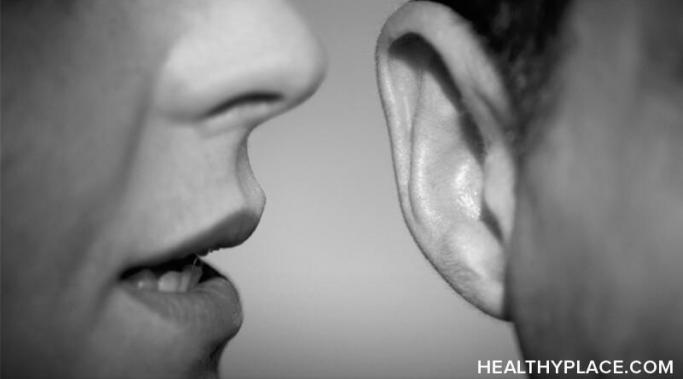Pushing the limits of my mental health lets me live an ambitious life, but it comes with a cost. There's so much I want to do, but overloading my schedule sometimes means sacrificing my mental health. I don't mean having a full-on episode of my mental illness, but rather, dealing with breakthrough symptoms that sometimes occur when I'm feeling overwhelmed. I feel like I have to choose between living symptom-free or pursuing my ambitions, so I often find myself pushing the limits of my mental health.
Coping Skills
Living with a mental illness leaves me with some painful and embarrassing memories I would rather not revisit. At the same time, they are a part of me I can’t escape. I want my daughter to know about all the twists and turns in my life that brought to where I am today as her mother, so I'll have to tell her some of my embarrassing memories in the future.
I want to share five things I do when I want to get out of a funk. By funk I don’t mean serious depression; I mean a really bad day, recent setback, or maybe even the monotonous routine of everyday life. It’s important to take care of yourself and feel good, especially in mental illness recovery. Here are simple things I do to cheer up and feel refreshed when I need to get out of a funk.
Mood disorder symptoms and schizophrenia make up the two parts of schizoaffective disorder. The mood disorder can be bipolar disorder or depression. I write a lot about my psychotic symptoms on HealthyPlace, but today I want to discuss my mood disorder symptoms.
Coping with psychotic symptoms is very difficult. It can be terrifying and hard to cope when you lose touch with reality. My auditory and visual hallucinations have been the scariest part of my struggle with schizoaffective disorder. My hallucinations come in the form of ghosts and spirits and have caused me a great deal of anxiety over the years. Here's how I've learned to cope with psychotic symptoms.
Stressful life events play an enormous role in mental health issues; the connection between stress and mental illness is strong. There have been a few stressful events in my life that have really affected my mental illness symptoms. Moving, college, and motherhood have had the biggest impact on me. Some of these events took place before I was diagnosed with schizoaffective disorder and bulimia, and some took place after. Here’s what happened and how I coped with these stressful life events.
A daily journal becomes a powerful tool when it comes to mental illness recovery because it allows you to get out of your head and onto paper. Oftentimes when someone is recovering from mental illness, they spend a lot of time alone or feeling lonely (even if they are around other people), and he or she is usually in his or her head with his or her thoughts. When you are able to write down your thoughts, your feelings, your beliefs, and what you are going through, something magical happens. You find so much clarity and peace in that practice, one of the many mental health benefits of journaling. Keeping a daily journal will aid your mental illness recovery.
Have you ever wondered what it's like to hear voices? Hearing voices is a classic symptom of schizophrenia. The bad news is, they're sheer torture. The good news is, medication can help--I haven't heard voices in several years. But for those of you who wonder, here's what it's like to hear voices.









